-
This document contains data on housing advice code trends and the most common housing advice codes.Publication date:December 2020
This document summarises trends in advice code data related to housing. All charts are based on advice code data. These are recorded by advisers every time advice in relation to a particular topic is issued. All figures are expressed as percentages of their “parent” advice code category: e.g. housing advice is expressed as a proportion of all advice issues, and PRS advice is expressed as a proportion of all housing advice. This allows for more effective comparisons between months when overall numbers of clients fluctuate and/or there are changes in advice provision (e.g. the shift to telephone and email at lockdown).
Spotlight: -
 Publication date:July 2020
Publication date:July 2020Scotland has set some of the most determined climate goals in the world, and home energy efficiency has a large role to play in Scotland’s transition to a low or no carbon society.
The Scottish Government has set ambitious goals for Scotland’s housing stock, which will be measured by a home’s energy efficiency rating as described in an energy performance certificate (EPC). However, consumer knowledge of EPCs is low, and even though they contain recommendations on how to make a home more energy efficient, they seem to be a poor motivational tool.
CAS commissioned Changeworks to gather feedback about how EPCs are viewed, understood, and interacted with by consumers, and how they could be improved to be better understood and more motivational.
Through a combination of ISM workshops and online testing, research found that:
-
Many people view energy efficiency as a luxury for those who can afford it
-
Barriers to home energy efficiency improvements are essentially cost and hassle
-
EPCs are not considered useful, and most homeowners just put them in a drawer
-
People who consider themselves highly environmentally conscious are no more likely to know their home energy efficiency rating or be familiar with an EPC than someone who is disengaged with environmental issues (value-intention gap)
-
People are mainly motivated by cost, but social desirability plays a large role as well. People may be more motivated by the cost of not acting than potential fuel bill savings, especially if this is linked to Scotland’s carbon targets or the climate emergency
-
A 1-2-3 style EPC, designed like a home report, may be easier for consumers to understand and engage with
-
Consumers value simplicity and colour, but for many the preferred style and layout was subjective. Energy efficiency advice accompanying an EPC is crucial to ensure consumers understand the document and are able to make the choices most suitable to their property
-
-
Publication date:February 2020Spotlight:
-
Publication date:August 2019
CAS is pleased to respond to the consultation on the proposed Fair Rents (Scotland) Bill. This Bill aims to protect private sector tenants by limiting rent increases and by increasing the availability of information about rent levels across Scotland.
Spotlight: -
CAS responds to new Commission's call for evidencePublication date:May 2019
The Scottish Government has established the Infrastructure Commission for Scotland to provide independent, informed advice on the creation of a 30-year infrastructure strategy to meet the country’s future economic growth and societal needs. To support this, the Commission issued a call for evidence.
Spotlight: -
Publication date:April 2019
CAS welcomes the opportunity to respond to the Scottish Government’s consultation on local connection and intentionality. In 2017/2018, CAB advised on 9,700 issues relating to homelessness. 2,189 of these issues were related to homeless assessments, processes and procedures, including the local connection and intentionality rules.
Spotlight: -
 Scottish Parliament Social Security Committee inquiryPublication date:March 2019
Scottish Parliament Social Security Committee inquiryPublication date:March 2019Advice provided by Scotland’s CAB network in relation to rent arrears has grown by over 40% since 2012, whilst debt-related issues experienced by CAB clients in Scotland have steadily declined over the same period. Given this long-term change, investigating the cause and consequences of rent arrears for CAB clients has been a policy priority for CAS.
Spotlight: -
Publication date:December 2018
Citizens Advice Scotland (CAS) welcomes the opportunity to contribute to this important discussion on the future of housing in Scotland. In 2017/2018, Scottish Citizens Advice Bureaux (CAB) advised clients on 46,777 housing issues, making housing the fourth largest area of advice provided by the network. This response is shaped by our evidence on the many and varied housing issues that CAB clients face, as well as by our Consumer Futures statutory responsibilities.
-
 Causes and Consequences for CAB ClientsPublication date:October 2018
Causes and Consequences for CAB ClientsPublication date:October 2018Advice in relation to rent arrears has grown by over 40% since 2012, whilst debt-related issues have declined. This report examines the reasons why this steady increase in rent arrears has occurred, as well as who is most likely to be affected. It also looks at how CAB clients cope with being behind on the rent, and how they have managed to escape rent arrears – if they have indeed managed to do so.
Spotlight: -
Publication date:July 2018
The social rented sector plays a fundamental role in providing genuinely affordable housing. High quality, energy efficient social housing is vital to Scotland’s communities. Scottish Government data shows that the energy efficiency of housing in the social rented sector has improved over recent years. However, while there have been some reductions in fuel poverty in this sector, the number of households in fuel poverty remains stubbornly high and greater than the national fuel poverty rate.
-
Scottish Parliament Local Government and Communities Communities CommitteePublication date:June 2017
Though not the only driver of homelessness, the past five years have seen a large increase in the number of rent arrears issues dealt with by Scotland’s CAB network. CAS is commencing research to examine the causes and consequences of rent arrears for CAB clients, including those who become homeless as a result. This submission examines CAB data related to homelessness and rent arrears, as well as some of the causes of rent arrears that can lead to evictions and homelessness.
Spotlight: -
 Issues affecting flooded consumers and ability to access affordable insurancePublication date:September 2016
Issues affecting flooded consumers and ability to access affordable insurancePublication date:September 2016CAS undertook a detailed survey research of 178 households in Scotland, over two thirds of which live in a flood risk area based on SEPA analysis.
Spotlight: -
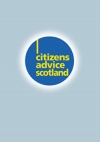 Social Security Advisory Committee consultationPublication date:February 2016
Social Security Advisory Committee consultationPublication date:February 2016Citizens Advice Scotland responded to a consultation on the UK Government's proposed changes to the length of time a person can be absent from Great Britain without losing entitlement to Housing Benefit and Pension Credit.
Spotlight: -
Publication date:May 2015
CAS respond to the Scottish Governments second consultation on a new tenancy for the private rented sector.
-
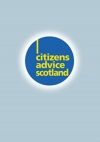 Commission on Housing & WellbeingPublication date:November 2014
Commission on Housing & WellbeingPublication date:November 2014CAS contributed evidence to the independent Commission on Housing & Wellbeing's wide-ranging consultation on how housing can promote a society in which everyone can flourish.
Spotlight: -
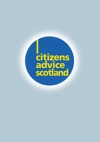 Written evidence to the Scottish Parliament Infrastructure and Capital Investment CommitteePublication date:August 2014
Written evidence to the Scottish Parliament Infrastructure and Capital Investment CommitteePublication date:August 2014CAS submitted written evidence to the Committee's inquiry on how local authorities are meeting their duties to people who may be homeless or threatened with homelessness since the abolition of the priority need test at the end of 2012.
Spotlight: -
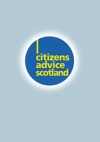 Evidence to Scottish Parliament Equal Opportunities CommitteePublication date:May 2014
Evidence to Scottish Parliament Equal Opportunities CommitteePublication date:May 2014CAS submitted written evidence to the Equal Opportunities Committee's follow-up inquiry to their 'Having and Keeping a Home' report in 2012 which examined the causes of homelessness amongst young people and steps that could be taken to prevent it.
Spotlight: -
CAS ResponsePublication date:March 2014
CAS have submitted evidence to the Infrastructure and Capital Investment Committee on the Housing (Scotland) Bill.
Citizens Advice Scotland broadly supports the Bill as introduced, but has some recommendations for areas where it could be strengthened or clarified.
Spotlight: -
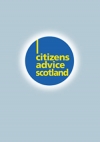 Written Evidence from Citizens Advice ScotlandPublication date:March 2014
Written Evidence from Citizens Advice ScotlandPublication date:March 2014The Housing (Scotland) Bill is proposed to make a number of changes to the law affecting both social and private rental housing. Based on the experiences of CAB clients, CAS submitted written evidence to the Scottish Parliament Committee examining the Bill.
Spotlight: -
Scottish Affairs CommitteePublication date:June 2013
The UK Government’s changes to Housing Benefit have had a significant impact on claimants in Scotland. In this briefing, we have concentrated on the developing impact of the ‘bedroom tax’.
Spotlight:
Stressed About Debt? High costs of energy, food and fuel mean that many people are finding it impossible to keep up, worrying about debt or falling behind on bills. The Citizens Advice network in Scotland is here for you, with free, confidential and impartial advice in a variety of ways.